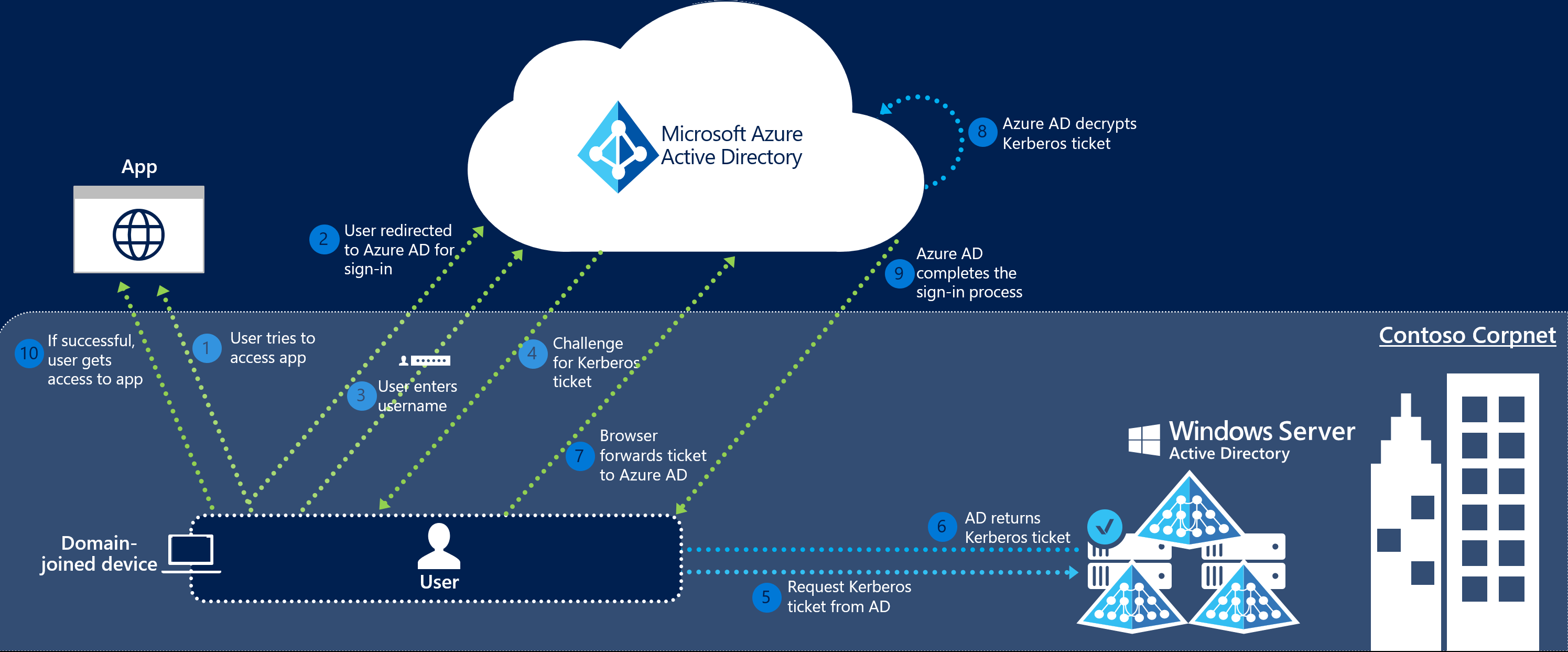This is an endpoint which is not used independently, but rather as a sub-feature of another feature in Azure AD. The feature is Azure AD Seamless SSO, which you can find out in general more by clicking the link in the picture

Autologon endpoint is used to facilitate particular flows of Azure AD Seamless SSO. One of the flows provides WS-Trust endpoint via metadata query. This endpoint is available for managed account types on all global Azure AD tenants. This is regardless if Seamless SSO is enabled or not.
AFAIK the flow isn’t meant to be used outside of the Seamless SSO scenarios. ROPC (Resource Owner Password Flow) would be the recommended flow if you absolutely need to transport username and password outside of the browsers input flow (passive ”profiles”)
Example: Get token from UserNameMixed endpoint, and exchange the SAML Token (DesktopSSO) for OAuth2 Access Token
[string]$username= Read-Host -Prompt "Enter UserName"
$securedValue = Read-Host -AsSecureString -Prompt "uurPass"
$bstr = [System.Runtime.InteropServices.Marshal]::SecureStringToBSTR($securedValue)
$password = [System.Runtime.InteropServices.Marshal]::PtrToStringAuto($bstr)
$requestid = [System.Guid]::NewGuid().guid
$domain = ($username -split "@")[1]
Invoke-RestMethod -Method Get -UseBasicParsing ("https://login.microsoftonline.com/common/userrealm/$username" + "?api-version=1.0") -UserAgent $userAgent
$headers = @{
"client-request-id"=$requestid
"return-client-request-id"="true"
}
$uri2 = "https://autologon.microsoftazuread-sso.com/$domain/winauth/trust/2005/usernamemixed?client-request-id=$requestid"
[xml]$data = '<?xml version="1.0" encoding="UTF-8"?>
<s:Envelope xmlns:s="http://www.w3.org/2003/05/soap-envelope" xmlns:a="http://www.w3.org/2005/08/addressing" xmlns:u="http://docs.oasis-open.org/wss/2004/01/oasis-200401-wss-wssecurity-utility-1.0.xsd">
<s:Header>
<a:Action s:mustUnderstand="1">http://schemas.xmlsoap.org/ws/2005/02/trust/RST/Issue</a:Action>
<a:MessageID>urn:uuid:36a6762f-40a9-4279-b4e6-b01c944b5698</a:MessageID>
<a:ReplyTo>
<a:Address>http://www.w3.org/2005/08/addressing/anonymous</a:Address>
</a:ReplyTo>
<a:To s:mustUnderstand="1">https://autologon.microsoftazuread-sso.com/dewi.onmicrosoft.com/winauth/trust/2005/usernamemixed?client-request-id=30cad7ca-797c-4dba-81f6-8b01f6371013</a:To>
<o:Security xmlns:o="http://docs.oasis-open.org/wss/2004/01/oasis-200401-wss-wssecurity-secext-1.0.xsd" s:mustUnderstand="1">
<u:Timestamp u:Id="_0">
<u:Created>2019-01-02T14:30:02.068Z</u:Created>
<u:Expires>2019-01-02T14:40:02.068Z</u:Expires>
</u:Timestamp>
<o:UsernameToken u:Id="uuid-ec4527b8-bbb0-4cbb-88cf-abe27fe60977">
<o:Username>DefinedLater</o:Username>
<o:Password>DefinedLater</o:Password>
</o:UsernameToken>
</o:Security>
</s:Header>
<s:Body>
<trust:RequestSecurityToken xmlns:trust="http://schemas.xmlsoap.org/ws/2005/02/trust">
<wsp:AppliesTo xmlns:wsp="http://schemas.xmlsoap.org/ws/2004/09/policy">
<a:EndpointReference>
<a:Address>urn:federation:MicrosoftOnline</a:Address>
</a:EndpointReference>
</wsp:AppliesTo>
<trust:KeyType>http://schemas.xmlsoap.org/ws/2005/05/identity/NoProofKey</trust:KeyType>
<trust:RequestType>http://schemas.xmlsoap.org/ws/2005/02/trust/Issue</trust:RequestType>
</trust:RequestSecurityToken>
</s:Body>
</s:Envelope>
'
[string]$UsernameToken = [System.Guid]::NewGuid().guid
[string]$messageId = "urn:uuid:" + ([System.Guid]::NewGuid().guid)
$data.Envelope.Header.Security.UsernameToken.Id =$UsernameToken
$data.Envelope.Header.Security.UsernameToken.Username = $username
$data.Envelope.Header.Security.UsernameToken.Password = $password
$data.Envelope.Header.MessageID = $messageId
$data.Envelope.Header.To.'#text'= $uri2
$req = Invoke-RestMethod -UseBasicParsing -Uri $uri2 -Method Post -Headers $headers -Body $data -ContentType "application/soap+xml; charset=utf-8" -UserAgent $userAgent
$samltoken = $req.Envelope.Body.RequestSecurityTokenResponse.RequestedSecurityToken.Assertion.DesktopSsoToken
$token ='<saml:Assertion xmlns:saml="urn:oasis:names:tc:SAML:1.0:assertion"><DesktopSsoToken>SAMLSSO</DesktopSsoToken></saml:Assertion>' -replace "SAMLSSO", $samltoken
$bytes = [System.Text.Encoding]::ASCII.GetBytes($token)
$base64 = [System.Convert]::ToBase64String($bytes);$base64
$uri3 = "https://login.microsoftonline.com/common/oauth2/token"
$body =@{
client_id="cb1056e2-e479-49de-ae31-7812af012ed8"
resource="https://graph.microsoft.com"
grant_type="urn:ietf:params:oauth:grant-type:saml1_1-bearer"
assertion=$base64
}
$req = Invoke-RestMethod -UseBasicParsing -Uri $uri3 -Method Post -Headers $headers -ContentType "application/x-www-form-urlencoded" -Body $body
$headers = @{
"Authorization" = ($req.token_type) +" "+ ($req.access_token)
}
$me = Invoke-RestMethod -Uri ($body.resource + "/v1.0/me") -Method Get -Headers $headers; $me
0 comments on “Reddit Thread Answer: Azure AD – Autologon endpoint”